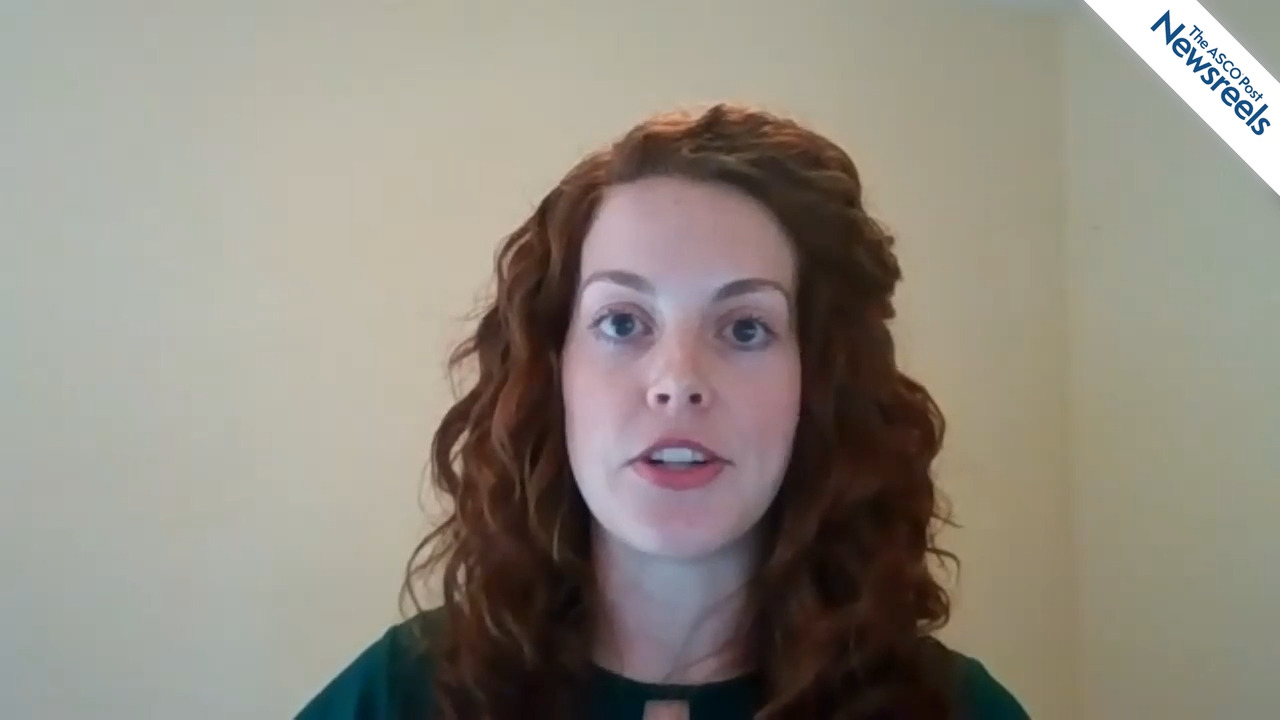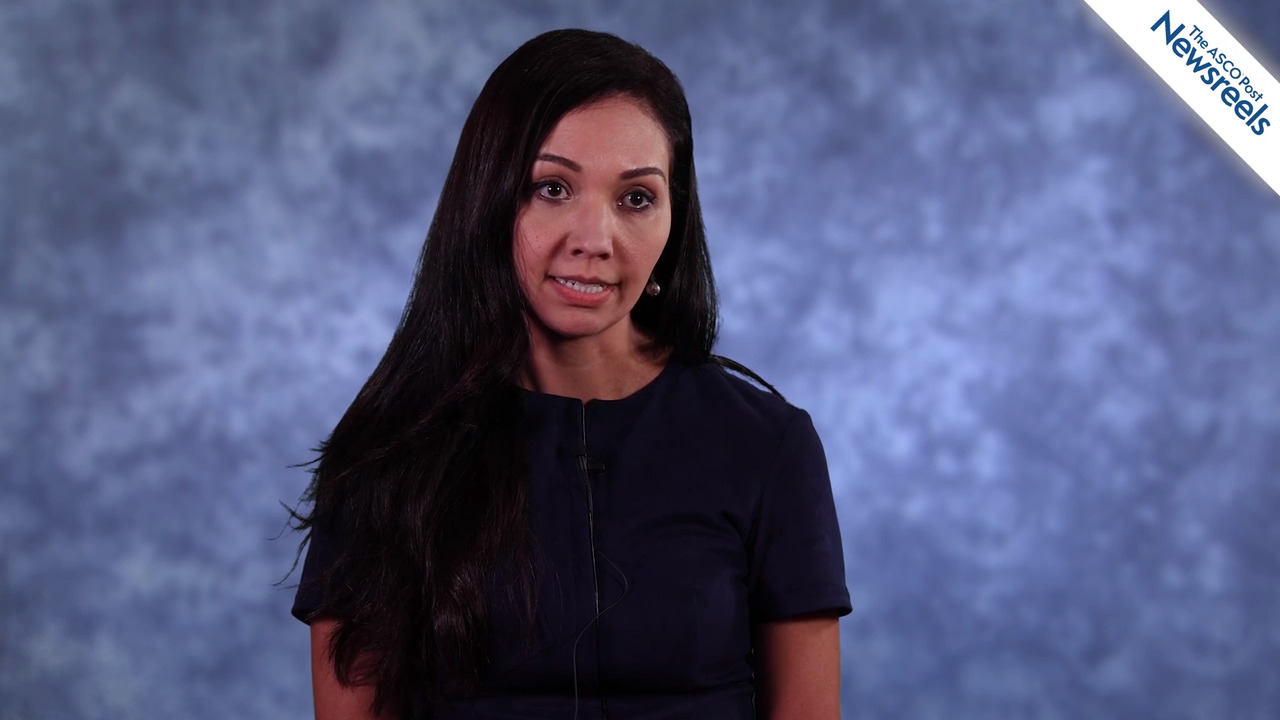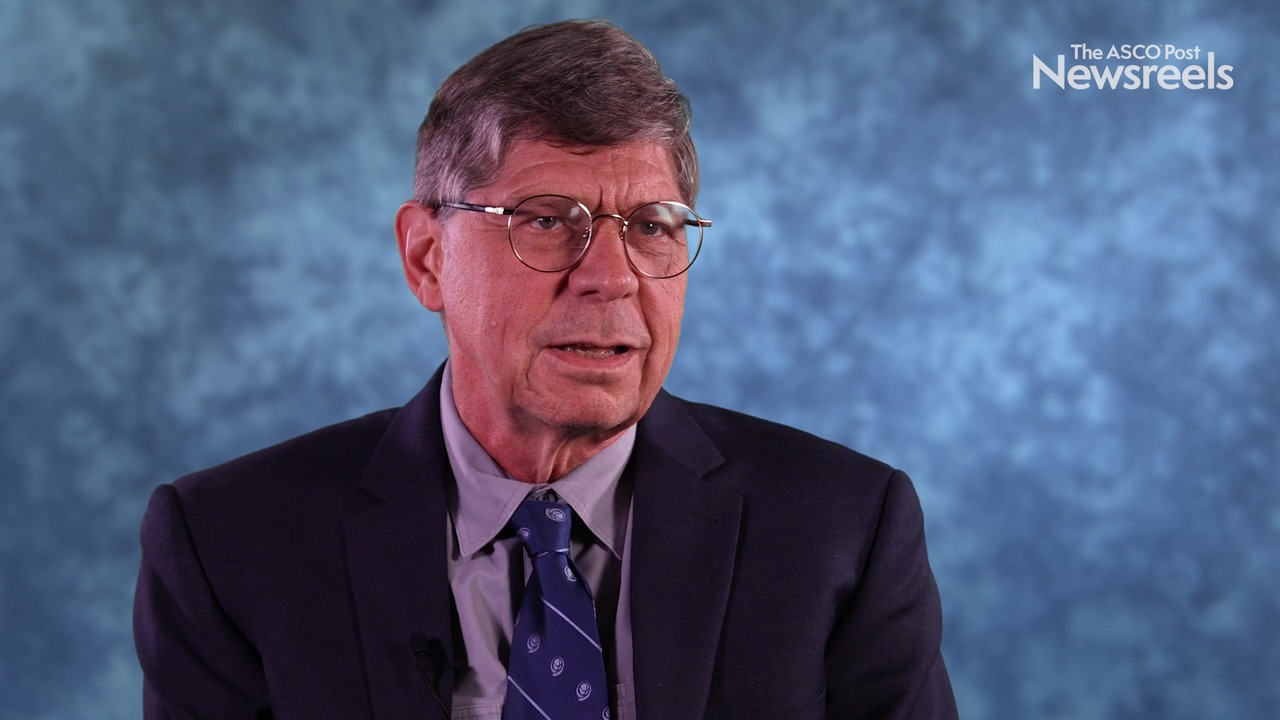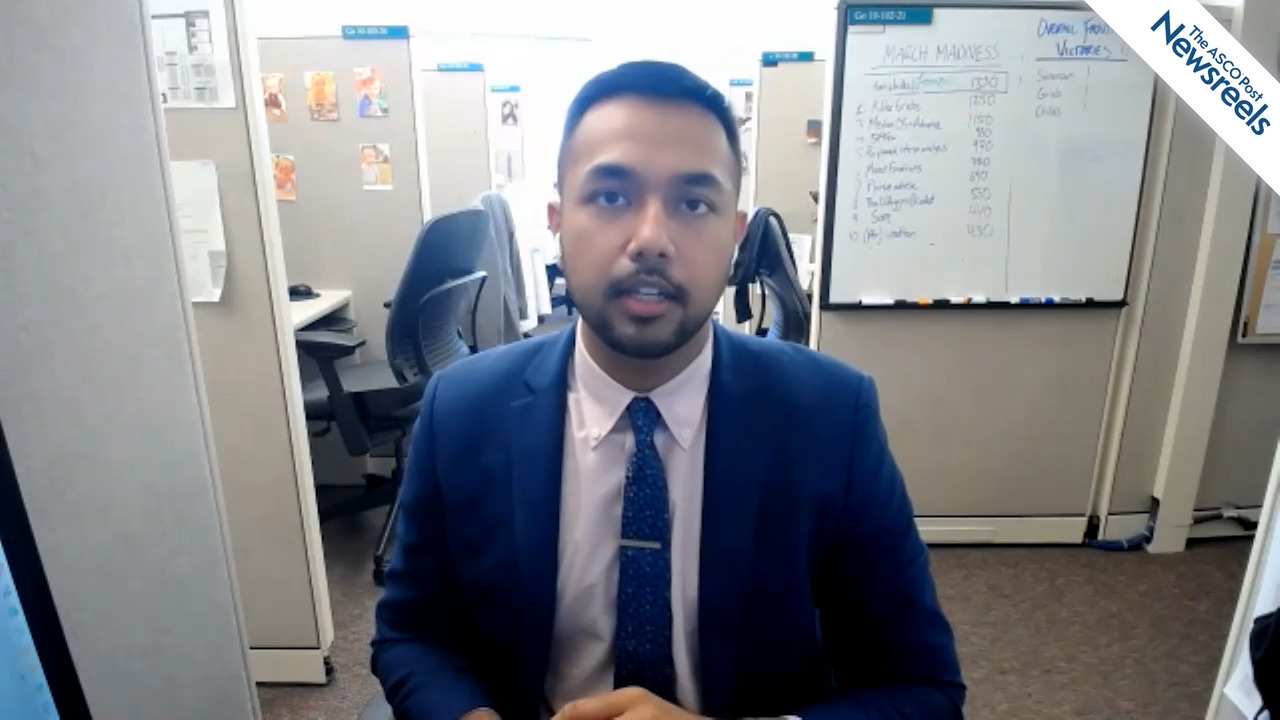Divya Gupta, MD, on Improving Advance Care Planning Conversations With Patients
2021 ASCO Quality Care Symposium
Divya Gupta, MD, of the Stanford Cancer Center, discusses an intervention utilizing a computer model and lay care coaches to improve advance care planning conversations with patients who have metastatic cancer. The study, Dr. Gupta reports, showed a trend toward less intensive care for patients at the end of life.
The ASCO Post Staff
Divya A. Parikh, MD, of Stanford University School of Medicine, discusses findings that suggest an evidence-based tool, the Serious Illness Conversation Guide, may engage patients with metastatic or recurrent urologic cancer in goals-of-care conversations, potentially resulting in an increase of documentation of their goals in the electronic medical record.
The ASCO Post Staff
Courtney Williams, DrPH, of the National Cancer Institute, discusses the costs associated with cancer survivors who don’t take their medications and cites the need for research to better understand whether residing in an urban or rural area may affect prescription adherence, and what interventions might help increase drug adherence and improve health outcomes.
The ASCO Post Staff
Leticia Nogueira, PhD, MPH, of the American Cancer Society, discusses results from a study designed to evaluate the impact of Medicaid expansion under the Affordable Care Act (ACA). In Medicaid-expansion states, mortality among patients after lung cancer surgery decreased from 2.4% before the ACA to 0.8% after the ACA, with no significant change in non–Medicaid-expansion states.
The ASCO Post Staff
John V. Cox, DO, MBA, of The University of Texas Southwestern Medical Center, summarizes his Joseph V. Simone Lecture, in which he stressed the need for coordinated care among practices. The concept of oncology medical homes, he says, has evolved to a broader-based model in which oncologists cooperate with other practices to manage patients and their comorbidities with optimal outcomes. Professional organizations such as the American College of Physicians and ASCO can provide clinicians with the tools they need to engage in this future of health care.
The ASCO Post Staff
Aakash Desai, MPH, MD, of the Mayo Clinic in Rochester, Minnesota, talks about the urgent need for drug pricing reform, given the average expenditure of Medicare part D, and the ultimate out-of-pocket costs for patients with cancer. The promise of precision oncology will fail, says Dr. Desai, if we fail to bring the right drugs to the right patient at the right time, with the right price.





